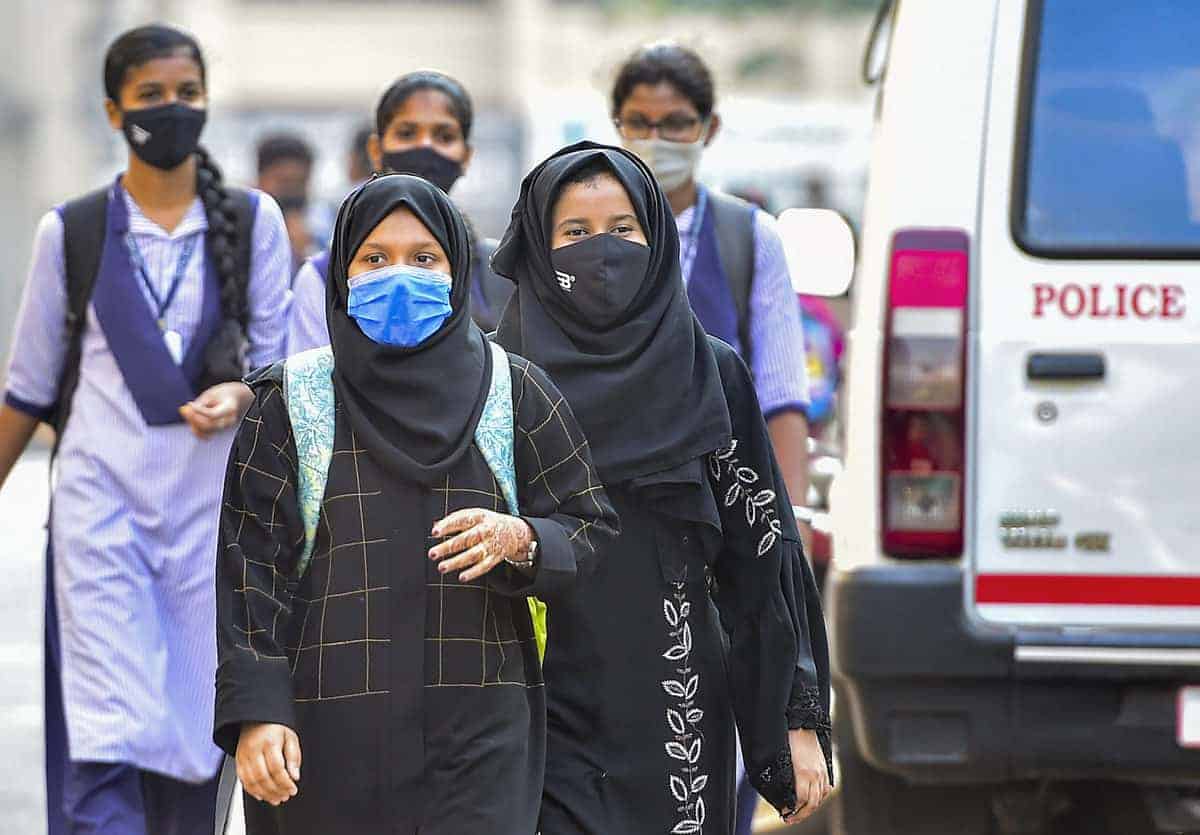
I ask myself why the Court needed to ask whether the fundamental rights of freedom of expression under Article 19 (1) (a) and the right of privacy under Article 21 are mutually exclusive or complementary because my private rights are not affected by the practice of your religion the way you believe it ought to be practised nor is my right of freedom of expression of my religious belief something that adversely affects your right.
The contention that uniformity is somehow affected and that is not consistent with national interest is laughable because uniformity is not to be in private spheres: rights guaranteed admit of expansive interpretation while prohibitions restricting the state against discrimination cover dress markers. You cannot mark out and discriminate against any person because they are identifiable by their dress.
Sri Adi Visheshwara of Kashi Vishwanath Temple was quoted where the Court held religious freedom guaranteed by Articles 25 and 26 is intended to be a guide to community life and ordains every religion to act according to its cultural and social demands …strike a balance between rigidity of religious belief and faith and intrinsic restrictions in matters of religion, religious beliefs and guaranteed freedom of conscience… religion believes in conscience and ethical and moral precepts. …The scope of protection under Article 25 goes beyond religious beliefs. …affords to all persons freedom to beliefs which may not necessarily be religious but which may spring from one’s conscience.
Examining right to freedom of conscience and religion in light of the restrictions provided under Article 25(1) of the Constitution, the Court observed the right is not just subject to public order, morality and health but also ‘other provisions of Part III’. Quoting from T.M.A. Pai Foundation it said this would also include Article 14 which provides for equality before law. Now that article requires all are to be equal before, and to be treated similarly by, the law, i.e., without reference to wealth, position, sex, power, religion, etc., and refers to the justice delivery machinery. How is it relevant here? Moreover, TMA Pai goes further to hold that the right given to a person under Article 25(1) can be curtailed or regulated if the exercise of that right would violate other provisions of Part III of the Constitution, or if the exercise thereof is not in consonance with public order, morality and health. Is it anyone’s case that other provisions of Part III of the Constitution are violated by girls wearing a hijab, or public order, morality and health are adversely affected? It is not, never was, and cannot be. It is as far-fetched as saying that if I have the meat shop then the vegetarians are right to purchase vegetables from my outlet is violated or someone running a vegetarian restaurant violates my right to eat non-vegetarian food there.
One must be alive to the nuances of what is being increasingly seen in a fractured society and people’s rights are being restricted citing as reason that they consume non-vegetarian food or even eggs, and one would be gratified if adjudicators factor in the adverse effect of decisions on the way societies are seen to evolve. We saw some time ago that the observation in a judicial order that certain people belonged behind bars resulted in immediate state action to detain them, and in the matter of the hijab the mere denial of an order by a Court at the initial stage resulted in vigilantes becoming aggressive in public towards citizens wearing them and ripping off their head coverings, and the state by and large remained inert, necessitating a public uproar. The Courts must also be seen to be alive to the fact that certain politically active sections or groups have publicly expressed that they will not be regulated or controlled by whatever the law might say and in such a case the protective umbrella of the court’s order must be extended to protect the rights of those who are vulnerable, not capable of being even remotely misunderstood as providing a shot in the arm to those who are being belligerent and aggressive.
Another question the judges framed was, “Whether the GO meets the test of reasonableness for the purposes of Article 21 and Article 14?” Citing that Tajamul Husain’s proposed amendment “No person shall have any visible sign or mark or name, and no person shall wear any dress whereby his religion may be recognised,” was not accepted, noting the argument was that therefore, the citizens have right to have visible dress differentiation though their religion may be recognized, the Court did not find favour with that stand. Further discussion in the Constituent Assembly shows reference to “dhoties, pyjamas, kurtas…”. Can those be banned? Would any State like to attempt that? Moreover, in respect of CA Debates, the Court in A.K. Gopalan v. State of Madras held it could only search for the objective intent of the legislature primarily in the words used in the enactment, not give any importance to speeches made by members of the Constituent Assembly, citing State of Travancore-Cochin v. Bombay Company Ltd., noting it held that extrinsic aid of speeches made by members of Constituent Assembly in course of debates for interpretation of statutes is inadmissible in construction of Indian statutes, and even cited the nine-Judges’ judgment in Indra Sawhney v. Union of India where it was held that what is said during the debates is not conclusive or binding upon the Court. If that view of Tajamul is not binding, and was not accepted even then, and the article in question does not prohibit expression of religion through dress, and the State is prohibited from making law regulating it sans issues of morality, public order or health, and none of these are affected, and even the State did not say so, and the stated reason was (per GO itself) “students in a few institutions **carrying out their religious observances …has become an obstacle to unity and uniformity in the schools and colleges” it leaves little doubt what was under attack really was “students carrying out religious observances”: the GO thus expressly seeks to regulate what it thinks is a religious observance though a headscarf is neither religious observance nor can be an obstacle to unity or uniformity. The State thus clearly attempted, ultra vires, to regulate precisely what the Constitution forbade it from regulating! Colourable exercise of power? Do we need to look further?
If abused verbally, it is violence against my rights. If deprived of what I am entitled to, violence perpetrated, my rights are destroyed. Whether a vehicle employed is a bulldozer or a legislative act, where constitutionally guaranteed rights of citizens are sought to be violated, or even curtailed, Courts will ensure such steps are prevented, such policies do not succeed, due exercise of rights upheld, and rule of law prevails. None needs to worry, for the judicial process is on, a larger bench is yet to be constituted. Judges, ever vigilant guardians of our Constitutional rights, have sworn oaths to uphold them and therefore the coming of the dawn is just a matter of time. As a song-writer’s query teases
रात भर का हैं मेहमान अंधेरा | किस के रोके रुका हैं सवेरा ||
(Raat bhar ka hai mehmaan andhera/Kis kay rokey ruka hai savera)
Shafeeq Rahman Mahajir is a well-known lawyer based in Hyderabad

